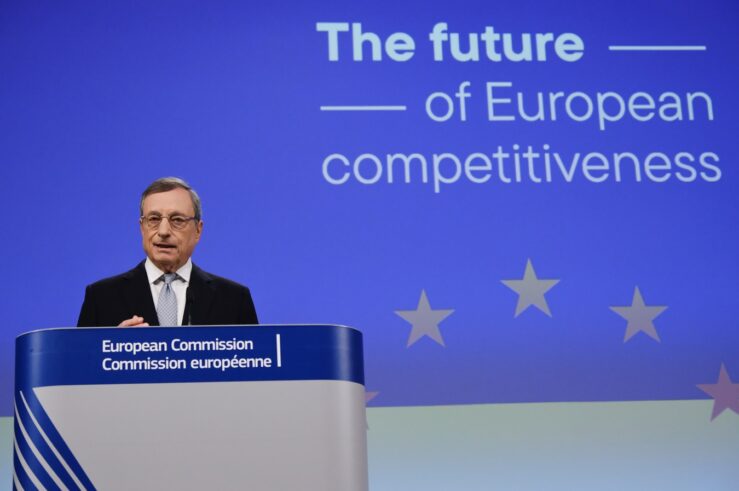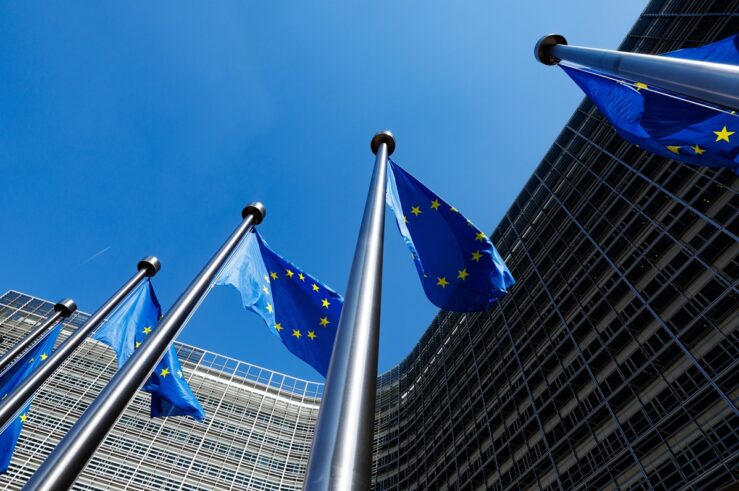Showing archive for: “EU”
Kids and Online Safety: An International End-of-Year Review
As the year comes to a close, it is worth reviewing how governments around the world—including at both the state and federal level in the United States—have approached online regulation to protect minors. I will review several of the major legislative and regulatory initiatives, with brief commentary on the tradeoffs involved in each approach. Age ... Kids and Online Safety: An International End-of-Year Review
AI Hallucinations, GDPR, and the Importance of Cautious Optimism
The General Data Protection Regulation (GDPR), the EU’s data-protection law, requires accuracy in processing personal data. But generative-AI services, such as large language models (LLM), may “hallucinate” or reflect information that is false but widely spread. On one hand, such inaccuracies may seem like an inherent feature of the technology. On the other, some major ... AI Hallucinations, GDPR, and the Importance of Cautious Optimism
The View from Korea: A TOTM Q&A with Dae Sik Hong
Professor Hong, could you please tell us a bit more about your background and how you got interested in digital competition regulation? In South Korea, I have unique combined experience as a court judge and as an antitrust specialist at a major law firm, conducting numerous research projects that connect theory and practice. I have ... The View from Korea: A TOTM Q&A with Dae Sik Hong
It May Be Time to Consider Reforming Global Competition Policy
As the incoming Trump administration contemplates ways to promote U.S. economic growth and innovation, it may wish to consider two possible new global competition-policy initiatives. These actions, if successful, could help protect American (and foreign) firms from foreign government impediments to effective competition. Antitrust Around the World Antitrust law (called competition law in other countries) ... It May Be Time to Consider Reforming Global Competition Policy
Reclaiming Antitrust
The United States is the birthplace of antitrust, starting with the enactment of the Sherman Antitrust Act in 1890. During the late 19th and early 20th century, cartels were common in Europe, while U.S. antitrust enforcers unraveled them. Only after World War II did European countries incrementally adopt competition law in various forms. Since that ... Reclaiming Antitrust
European Competition Law Is Lost at Sea
Imagine a world where digital-competition policy was guided by a desire to foster startup activity, competitiveness and, ultimately, growth. Competition policymakers would promote market conditions that enable new digital services to rapidly launch, gain user traction, and achieve greater scale. All of this would improve productivity, drive down prices for existing services, and help to ... European Competition Law Is Lost at Sea
Should the GDPR Prohibit AI?
The European Data Protection Board’s (EDPB) Nov. 5 stakeholder consultation on AI models and data protection—organized to gather input for an upcoming Irish Data Protection Commission opinion under Article 64(2) of the General Data Protection Regulation (GDPR)—showcased significant lingering disagreement on how the GDPR should apply to AI. While the event was not intended to ... Should the GDPR Prohibit AI?
Preemptive Digital-Platform Rules Are Not Good Competition Policy, But They Were Never Meant to Be
Inspired by the European Union’s Digital Markets Act (DMA), a growing number of jurisdictions around the globe either have adopted or are considering adopting frameworks of preemptive digital-competition rules (DCRs) that would more closely regulate the business models of such platforms as Google’s search engine and Amazon’s e-commerce business. The Turkish government may soon join ... Preemptive Digital-Platform Rules Are Not Good Competition Policy, But They Were Never Meant to Be
Draghi Report Highlights Why to Be Wary of the ‘Brussels Effect’
Everyone in Europe, and across the international competition-law sphere, seems to have their own interpretation these days of former Italian Prime Minister and European Central Bank President Mario Draghi’s recent report “The Future of European Competitiveness” (a.k.a., the “Draghi report”). And, of course, those various interpretations, unsurprisingly, inevitably match the interpreter’s policy preferences. This is ... Draghi Report Highlights Why to Be Wary of the ‘Brussels Effect’
Europe’s Latest Antitrust Policy Pronouncement Threatens Innovation
A newly released draft of the European Union’s proposed monopolization guidelines suggest they could pose a new threat to innovative business practices that promote high-tech economic growth. The EU should scrap the draft and U.S. antitrust enforcers should likewise reject its approach. Overregulation Harms EU Economic Growth and Innovation The United States, not Europe, has ... Europe’s Latest Antitrust Policy Pronouncement Threatens Innovation
The Cookie Plan Crumbles: Stuck in the Middle with Google
Google recently announced that it has changed its plans to phase out third-party cookies in the Chrome web browser. The company had previously planned to disable third-party cookies in Chrome, a change supported by many in the privacy-stakeholder community, but which was met with criticism from the adtech industry and competition lawyers. Google’s new plans ... The Cookie Plan Crumbles: Stuck in the Middle with Google
U.S. Antitrust Enforcers Should Reject AI Interventionism
The U.S. Justice Department (DOJ) and Federal Trade Commission (FTC), in tandem with their fellow competition-law enforcers from Europe (the European Commission) and the United Kingdom (the Competition and Markets Authority, or CMA), issued a joint statement July 23 titled “Joint Statement on Competition in Generative AI Foundation Models and AI Products.” This joint statement ... U.S. Antitrust Enforcers Should Reject AI Interventionism
















